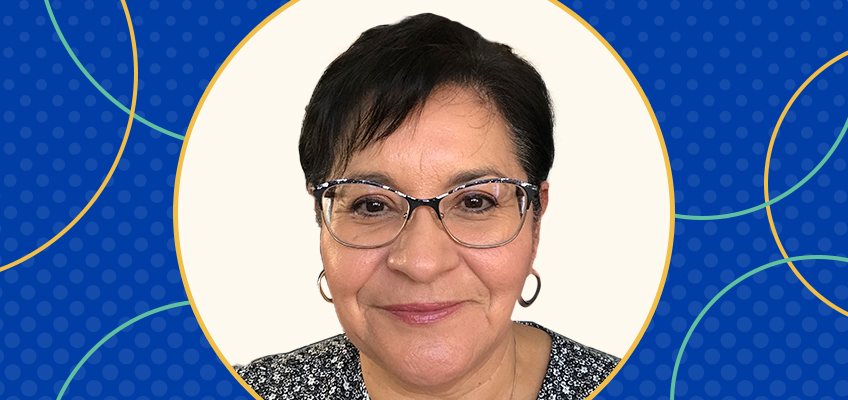
Fundations® is an evidence-based Structured Literacy program designed to provide the foundational skills to help all students become confident, independent readers. Establishing this solid foundation is especially important when helping multilingual students acquire the English language. Wilson® Literacy Specialist Carol Keough shared her insights on adapting Fundations for multilingual learners.
I’m Carol Keough, a Literacy Specialist for Wilson Language Training®, and I’ve been in this position for five years. My main role involves coaching teachers in schools and conducting launch workshops to help them implement Fundations with fidelity. I also do Wilson Reading System® Certifications for Level I. Before Wilson, I spent my career in the classroom teaching multilingual students.
The best part is visiting a school for the first time. Initially, students don’t know who I am and are curious why I am teaching the lesson. But as I return for subsequent visits, they start recognizing me in the hallways and get excited about my presence in their classrooms. It’s incredibly rewarding to see students eager to showcase their learning and to witness teachers’ pride in their students’ accomplishments. When students are excited, it’s a reflection of the teachers’ enthusiasm.
I was a first-grade teacher when Fundations was rolled out on my campus. The program came with everything I needed—the materials that we were going to be using, a teaching manual with systematic and explicit instructions, and even all the resources like words, sentences, sounds, and Unit tests. That all helped me so much because I had been creating my own lessons from scratch. Once Fundations was introduced, I could just focus on learning and implementing the program. It made teaching so much easier and more effective.
As a classroom teacher focused on multilingual learners, I wasn’t part of the initial coaching for Fundations. Once the program was up and running, though, one of my reading specialists started coaching me and I saw how Fundations could benefit my multilingual students as well. We incorporated Fundations vocabulary into our daily routines, not just in lessons but throughout the day—on the playground, in the cafeteria. This approach helped my students excel on Unit tests, but also on the end-of-year assessments for English language acquisition they had to take. And I think that’s the beauty of Fundations. Seeing how well they were doing and how quickly they were picking up English reinforced the power of coaching and how seamlessly I was able to integrate the program into my teaching.
Fundations fits perfectly into the process of acquiring English. In bilingual classes, we start by teaching sounds, which are crucial, especially given the language differences students might have, and build up from there. Fundations gives us daily lessons where we practice those sounds and focus on new vocabulary, incorporating visualization and other multimodal learning techniques. Fundations allows us to leverage students’ home languages to help them learn English! And then it all culminates in Storytime, which brings everything together for students—they have the vocabulary, they are visualizing, thinking about what is going on in the story, and practicing oral language with English. This systematic approach is incredibly effective for multilingual learners. It’s one of the things that has had the greatest impact.
Diagnostic planning is incredibly important for all students, but especially multilingual learners. We need to listen for sounds or letters that students struggle with and target those in our lessons. I loved using Fundations Unit resources to find words that could be integrated across all the lessons that week, focusing on trouble spots but also enhancing student knowledge and vocabulary. It was even better when I could find words that fit in with what we were studying in science or social studies, reinforcing learning throughout the day. Sentence work and phrasing also are imperative for our multilingual learners to grasp the rhythm and rhyme of their new language. Fundations has it all for us.
My advice is to set up a dedicated Fundations corner in your classroom. Get all your materials in one spot, so everything is quickly accessible when you’re teaching. Think about your main teaching area and create a cozy, organized space where you can easily reach everything you need.